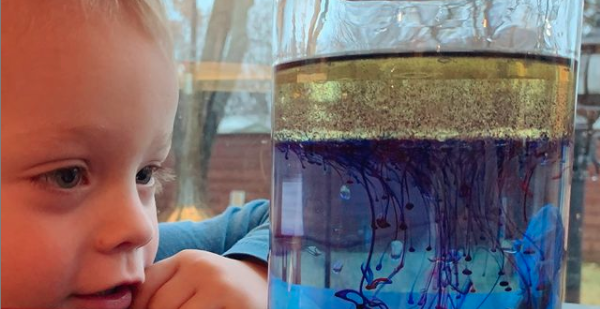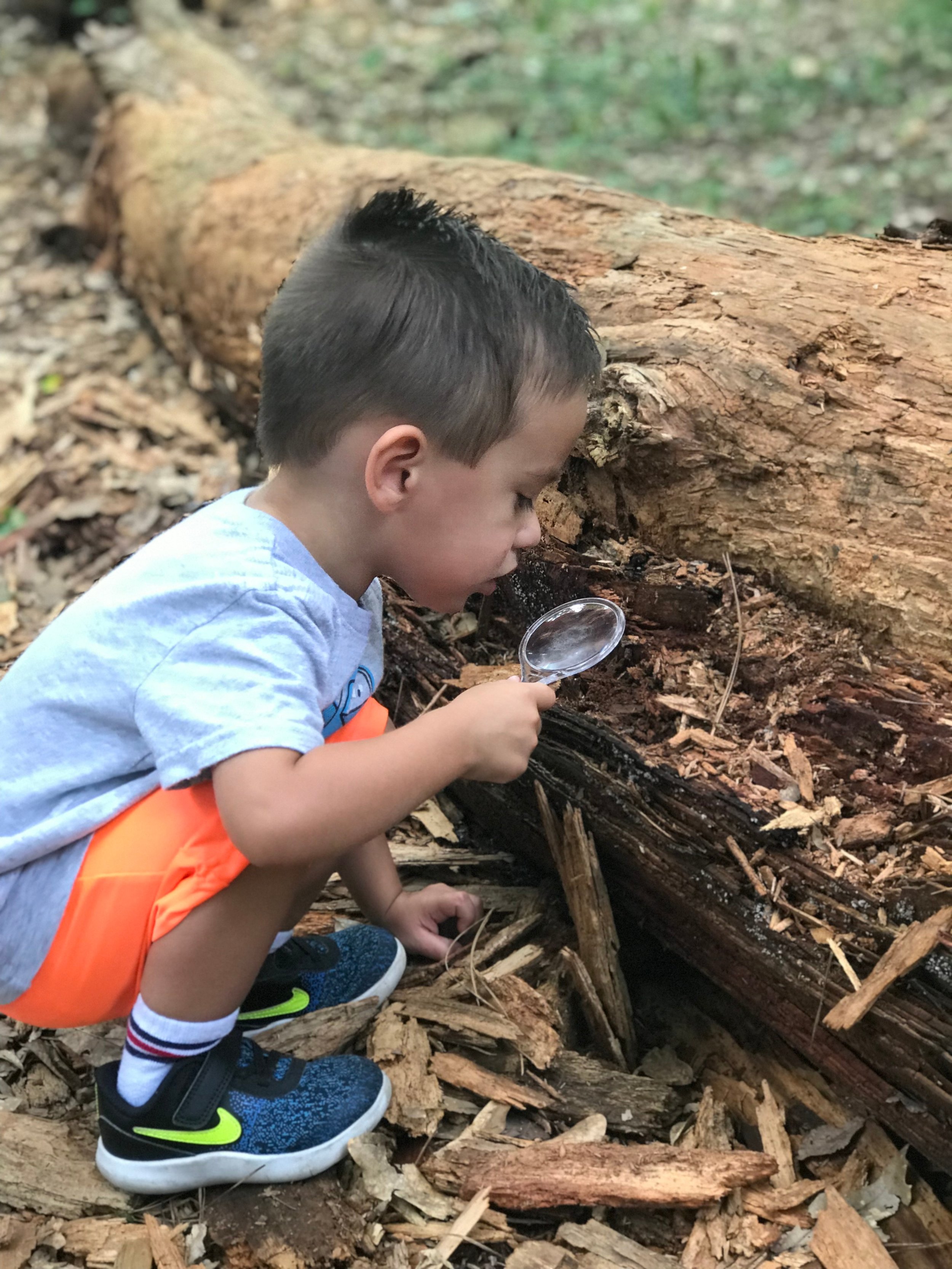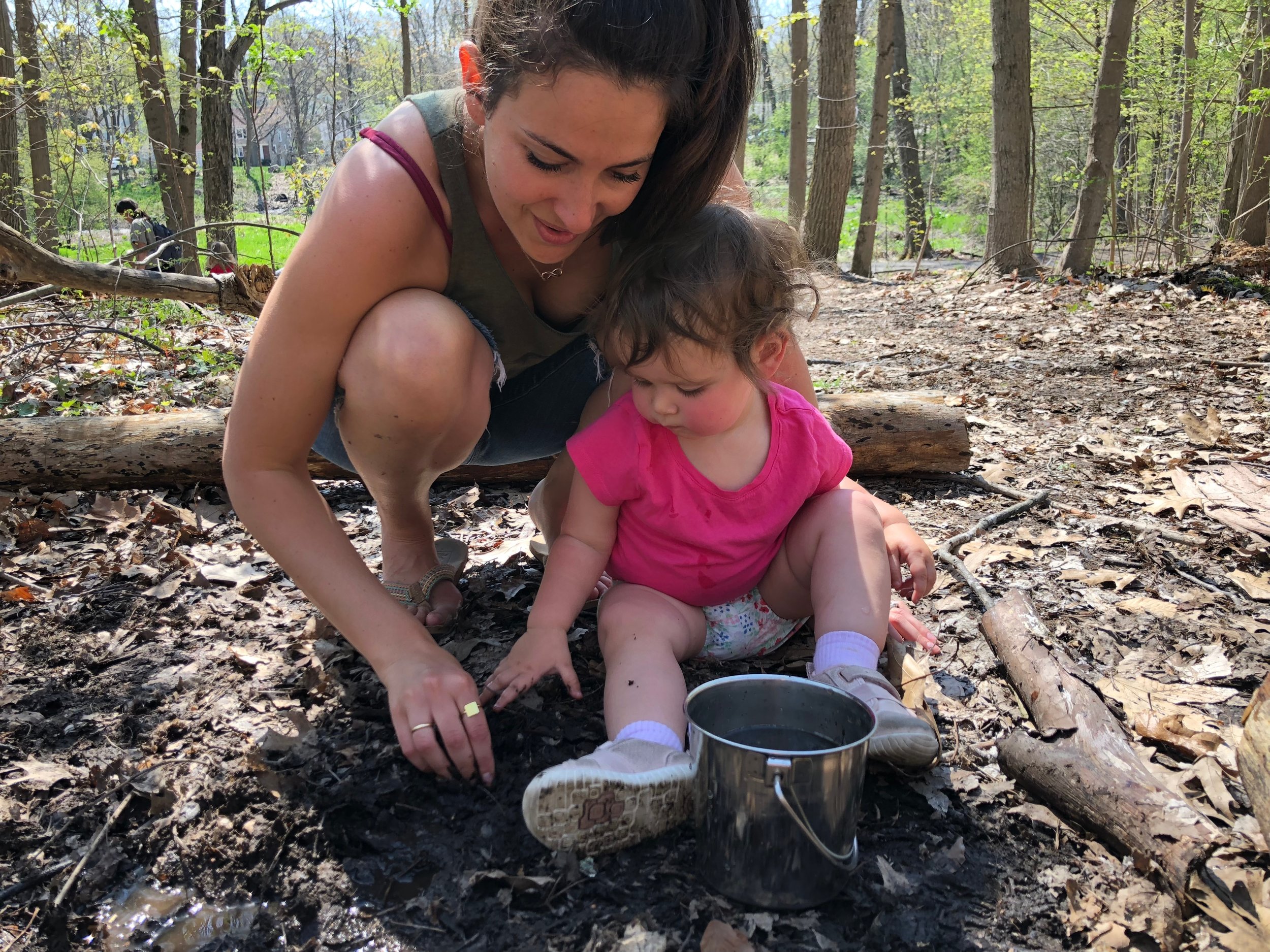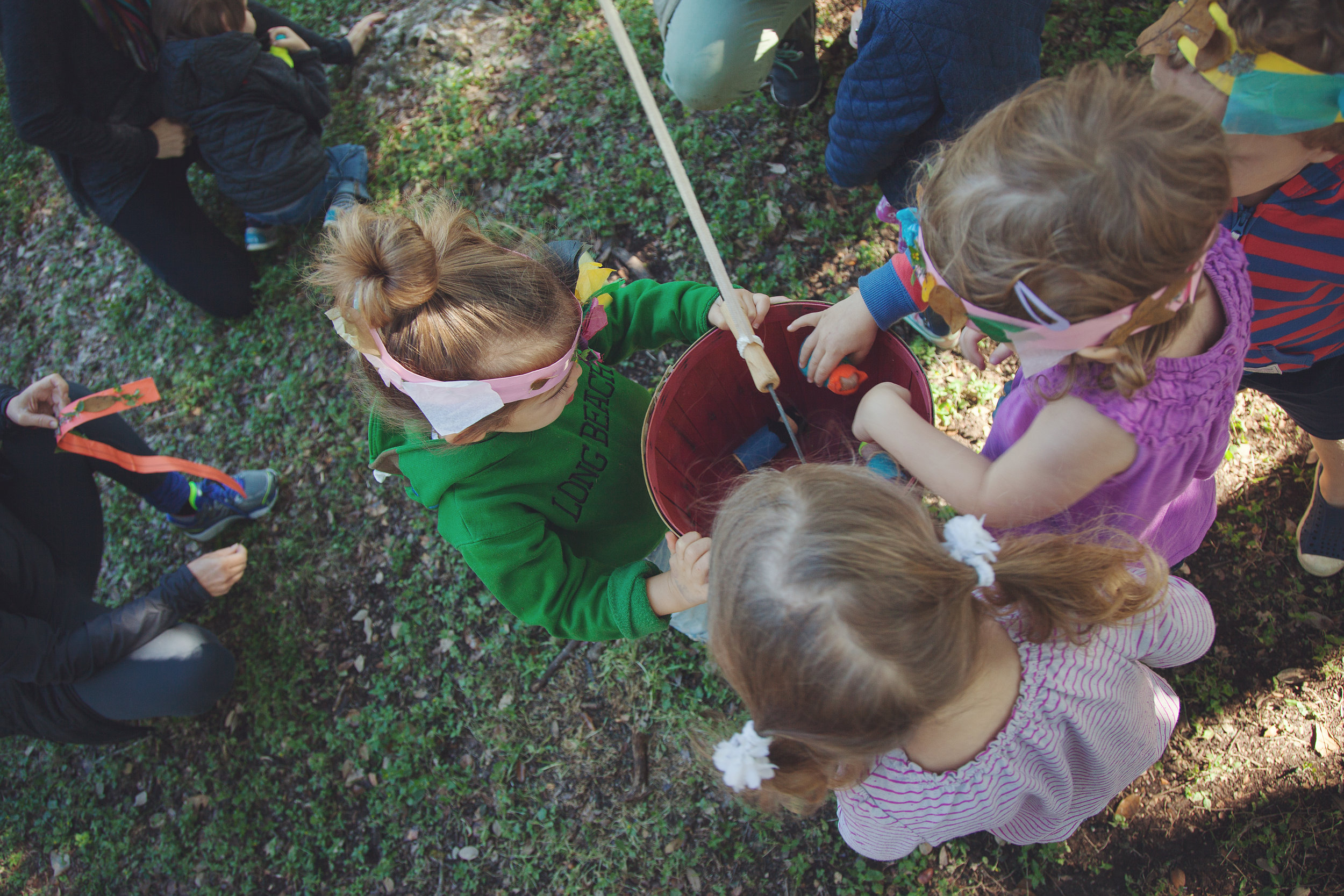When we design a new series, we often start by identifying a play project—a theme that unifies our lessons, inspires inquiry and gives children the chance to be even more creative, imaginative and focused in their play. For example, this winter, we will “do science” as we play.
Whether it’s STEM or STEAM, or even STREAM (Science Technology Robotics Engineering Arts and Mathematics), there is no doubt that kids will need strong science literacy skills to thrive in our ever changing and challenging world. The good news is that kids are natural scientists—we’ve just got to give them the environment that can help those innate skills strengthen as they grow. We are thrilled to kick off a season of play dedicated to helping families do just that! Here’s why...
Wait, what do we mean by “doing science” as we play?
As with any play project, we start by making a few agreements. First, we’ll agree that science is the study of the world around us, from the tiniest thing on Earth to the vast wonders of outer space. In order to “do science” we must ask questions about the world and try to find the answers. Then, it’s up to us to invent and use wonder (hurrah!) along with the tools we were born with (our senses!)—to play and do science—just like real scientists. Wow, this is going to be fun!
“Every kid you’ve ever met is full of questions. That’s what a scientist is. We’re full of questions.” —Neil DeGrasse Tyson
Children are born scientists.
Some folks may read this and say, “Children are scientists already,” and there is much truth to that. Early in life, children’s minds are flexible and hungry to make sense of the world. As Alison Gopnik describes in The Scientist in the Crib, babies have an “infinite capacity for wonder” and a drive to experiment to learn about their world. Wonder if wee ones can experiment? Hang out next to a high chair, and you’ll witness experiments with gravity. Researchers have even designed lab experiments that show how young children think and act like scientists.
“It’s not that children are little scientists — it’s that scientists are big children. Scientists actually are the few people who as adults get to have this protected time when they can just explore, play, figure out what the world is like.”
― Alison Gopnik
Astrophysicist, Neil DeGrasse Tyson urges us to remember that little kids have innate curiosity and wonder, making them natural scientists. It’s our job as parents and educators to “get out of the way.” We want to make sure that an adult focus on getting the “right answer” or arriving at a conclusion too quickly doesn’t crush a child’s natural drive to understand and discover their world—that drive that will make them more likely to learn and even pursue the sciences.
It takes more than curiosity to make a scientist. And it’s most often in the doing that the young scientists inside comes out.
Wonder, curiosity, and the drive to discover are essential qualities in a scientist, but there are also methods and content that define real science—and those important aspects of science are learned. The good news is, though, that STEM learning starts early!
Plus, research and experience remind us to be careful not to put pressure on kids or to support really narrow views of who can be a scientist by focusing our play on “being scientists.” Rather, we can shift from focusing on the identity to focusing on the action by using language like “doing science” or “thinking like scientists” and “acting like scientists” together as we play. Science is naturally mesmerizing to all kids and so important to our collective futures, so whether or not they become scientists, we want them all do and dig science!
We can support young children with STEM learning!
In 2014, the National Science Teachers Association adopted a position statement that identifies key principles about STEM learning for young children:
-
They have the capacity to engage in scientific practices and develop an understanding of science concepts.
-
They need multiple and varied opportunities to engage in science exploration and discovery.
-
They develop science skills and learning by engaging in experiential learning.
Not only are children born predisposed to wonder and discover, this position statement tells us that we adults play a crucial role. The experiences we offer our children and how we allow them to own those learning experiences can help them turn their infinite capacity for wonder into an understanding and love of science.
“Every kid starts out as a natural-born scientist, and then we beat it out of them. A few trickle through the system with their wonder and enthusiasm for science intact.” ― Carl Sagan
Unfortunately, depending on our approach, we can also play a detrimental role. Research shows us that children tend to lose their ability to think scientifically as they age, and the concepts become more abstract. The more we engage together around science play, the stronger the science skills kids will carry forward.
“Based on the review of more than 150 empirical studies from cognitive and developmental psychology and education—children are capable of remarkable problem solving from the earliest of years. At the same time, adult guidance, support, and awareness are critical to harnessing our intrinsic STEM capacity and transforming it into lifelong STEM intelligence, knowledge, and capability.” —Center for Childhood Creativity
Children learn through experimenting, and the opportunities to try, fail and learn from all outcomes. If we control the experiences and direct them to the “answers,” they will discover less, and will likely lose their connection to science.
If we unwittingly project any of our own insecurities about STEM learning onto kids, research shows that children not only miss the chance to gain experience, they also learn from us that they lack the skills needed for STEM work or even scientific thinking.
Why does it seem like science is really for some people and not others?
The world will require strong science literacy skills of our kids. Further, STEM skills also correlate with prosperity in the workforce and can lead to occupations that are not likely to be subsumed by automation.
Since 1990, STEM employment has grown 79% (9.7 million to 17.3 million), and computer jobs have seen a whopping 338% increase over the same period. However, disparities in STEM employment by race, gender, and socioeconomic status persist. We, collectively, need to change the way that education institutions support all STEM learners and the ways that companies hire STEM graduates for greater equity. Read more below about how educators and all of us can promote and push for equity in STEM learning and STEM careers.
Support STEM skills every day
As parents of our little ones, there is a lot we can do on our family scale to make science more accessible. Even though the stakes may seem high, the work is really about meeting children where they are—and helping them to solidify mindsets that will allow those innate capacities to persist and strengthen. Check out our post, How to Naturally Support your STEM Learner for easy ways to build on the natural STEM skills in your little scientists.
Resources for Equity in STEM Learning:
-
Equity in Science Education — Research and Practice Collaboratory (via Exploratorium, one of our favorite places on the planet)
-
Equity and Diversity in Science and Engineering Classrooms—National Academy of Sciences
-
How can we promote equity in science education?—STEM Teaching Tools
-
Adjust Your Language to Encourage Kids in Science—Futurity.org



